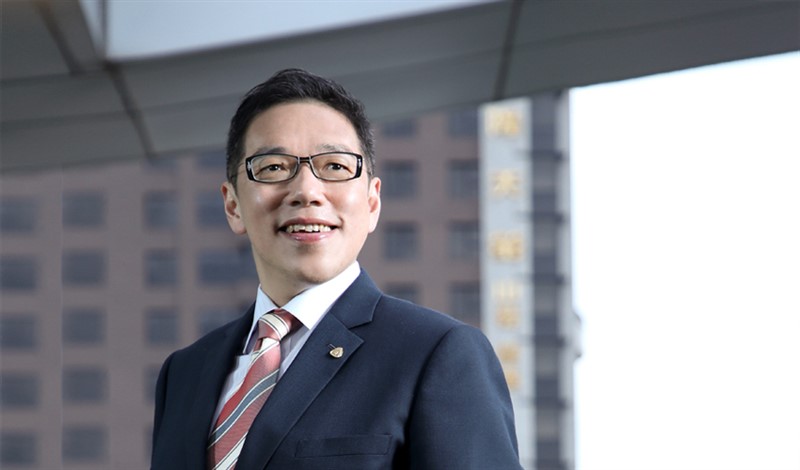Editor's Note
2022.10
The Chinese dream is atrophying

In 2006, China’s CCTV featured a show called the Rise of Great Powers which documented the rise of Portugal, Spain, the Netherlands, the United Kingdom and other empires through economic development. At that time, various economic organizations in China began to guess the year when China might surpass the United States and claim the mantle of the world's largest economy. In retrospect, however, that dream seems fleeting. Public opinion now reflects the view that China may never be able to surpass the US. Perhaps, decades later, when people look back at China’s economic history, the first ten years that Xi Jinping led China will be seen as an inflection point in China’s growth trajectory. It is natural for a country like China to dream of national rejuvenation. In China’s economic dream as a great power, state-owned enterprises lead the development of a “new normal.”Robots, aerospace equipment, and new energy vehicles under Made in China 2025 demonstrate China’s technological acumen. The Belt and Road Initiative (BRI) allows China to set global economic rules, while the renminbi proudly circulates in payment and clearing systems free from western influence. Moreover, in the mind’s eye of the Chinese Communist Party, the dominance of the US and the US dollar are no longer. Following China’s great rejuvenation, both China and the US redefine their spheres of influence in the Pacific, achieving a new structure of major power relations. However, reality has intervened. The system of people’s democratic dictatorship enshrined in the Chinese Constitution centralizes power in the party in a democratically centralized manner. The party leads the government and the army, with no need for cumbersome separation of powers or an independent judiciary. This is the framework of socialism with Chinese characteristics. The system may allow houses to be demolished, land acquired, and investment to be efficiently attracted, but it lacks fairness and justice in resource distribution, causing those in power to devalue property rights and human rights. Since the coronavirus pandemic broke out in Wuhan several years ago, the policy decisions of the Chinese government have brought to mind the prescient words of erstwhile Chinese Premier Wen Jiabao on the eve of his departure from office in 2012. At the time, Wen warned, “If reform of the economic system cannot be carried out to the end, the gains that have been achieved may be lost, the new problems in society cannot be fundamentally solved, and historical tragedies like the Cultural Revolution may reoccur.” Today, red guards have become so-called “white guards,” and people’s communes have become high-rise buildings and closed cities. Tragedy the Chinese people once thought banished to historical memory has returned, shaking the foundations of the Chinese dream. China has experienced these problems because its political system is not firmly anchored in the rule of law. A political system that does not start from protection of individual rights, but rather expects a wise ruler to guide the country’s development, cannot respond to economic challenges in a timely manner. Beijing’s economic and financial policy decisions have become increasingly politicized and unpredictable under Xi Jinping’s leadership. Case in point: Peer-to-peer (P2P) lending, once allowed to flourish in China and regarded as a facilitator of financial inclusion and an example of Chinese financial innovation, turned out to have some problematic elements, including vulnerability to Ponzi and pyramid schemes. However, instead of establishing sensible regulations for the industry, Beijing sought to eradicate it due to its perceived threat to systemic financial stability. Beijing’s abrupt swing from support of the industry to attempting to wipe it out left many investors high and dry. Perpetrators of scams were not held accountable in a reasonable manner. Meanwhile, the Chinese government’s harsh crackdown on P2P lending frightened tech investors who have been crucial to developing the country’s fintech ecosystem. China’s approach to P2P lending is just one example of how inconsistent and seemingly contradictory government policies undermine the country’s economic vitality. In recent years, Beijing has widened its crackdown to the entire consumer technology sector, kneecapping tech giants that have been among its most successful private companies – the very firms that might have been able to pose a challenge to US internet companies. It is instructive to think about the economic elements of the Chinese dream as pearls on a necklace. Each pearl formed steadily, reflecting China’s growing economic might. When the necklace was completed, with its many glowing pearls, it would have signified China’s achievement of national rejuvenation. However, the string of socialism with Chinese characteristics is insufficient to hold the necklace together, and the overweight Chinese dream has torn the string and scattered the pearls. As we move into the 2020s, the words of Premier Wen still ring in my ears. But it seems that China’s current party chief has not heard them, or does not want to hear them. Taiwan should start thinking about how to avoid being pulled down by the giant next door.



